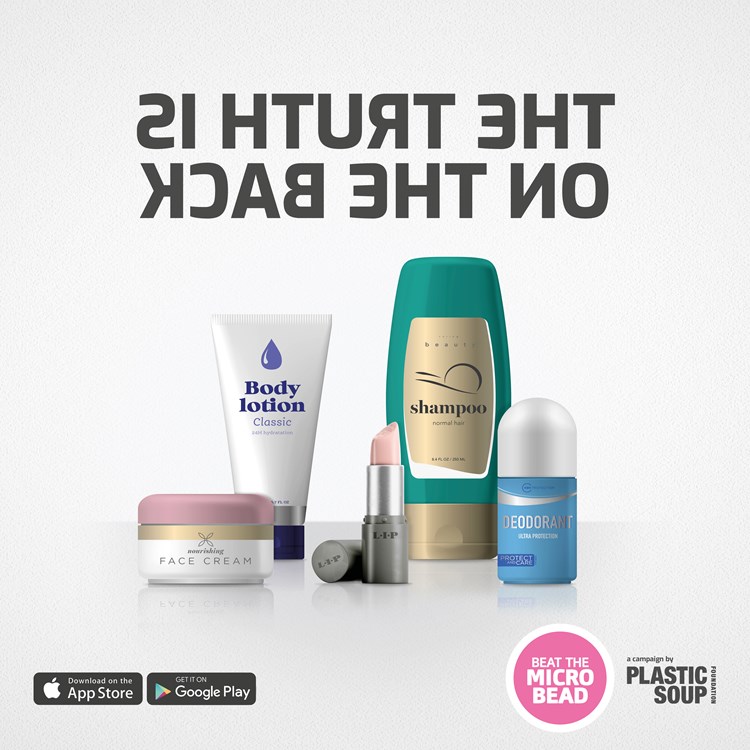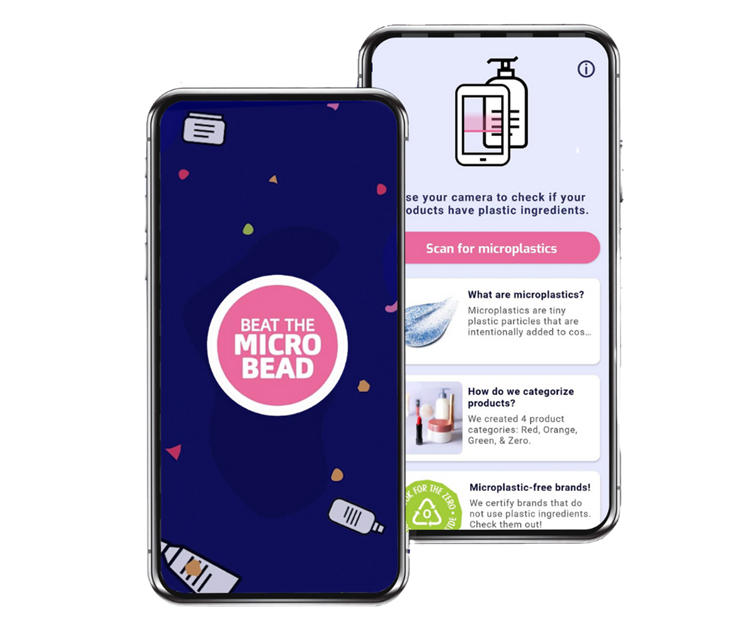Microplastics in beauty products: what to know and how to avoid them
For Plastic Free July, Madhuri of the Plastic Soup Foundation has written this guest piece looking at the issues surrounding synthetic microplastic pollution, and how opting for certified beauty and wellbeing products reduces the amount of these ingredients going into the environment.
Microplastics are an often-overlooked issue in the beauty and wellbeing industry, as when it comes to plastic waste generated through our personal and beauty care, the focus is often on the packaging. While this is, of course, really important – over 142 billion units of packaging are generated by our cosmetics each year globally! – microplastics, which are in the formulations themselves, regularly go unnoticed. This Plastic Free July - where millions come together to reduce their plastic use - we at the Plastic Soup Foundation want to shine a light on the issue.

What are microplastics?
Microplastics are tiny pieces of plastic, smaller than 5mm in size. They are added to various cosmetics, beauty, and personal care products. From shampoo, deodorant and sunscreen to toothpaste, makeup and hand sanitisers, all kinds of care and cosmetic products can contain these plastic ingredients. They are used for different purposes, such as film formation or viscosity regulation. The cosmetics industry also uses microplastic ingredients to fill up products at a low cost.
These microplastics, hardly visible to the naked eye, flow straight from the bathroom drain into the sewer system. Wastewater treatment plants are not always designed to filter them out; that is how microplastics contribute to the ‘Plastic Soup’ swirling around in our oceans. The microplastics caught in the sludge produced by the wastewater treatment plants are often applied as fertilisers to our agricultural fields, too, polluting our soils.
Are microplastics harmful?
Microplastic pollution is irreversible. Once these small plastics enter the oceans or environment, they are impossible to clean up. Sea animals absorb or eat microplastics, mistaking them for food. These particles can then be passed along the food chain. Fishes, mussels, salt, beer, drinking water and even our fruits and veggies have been found to contain microplastics. Since humans are ultimately at the top of this food chain, it is likely that we are also ingesting them. Microplastics are not biodegradable, and once they enter the (marine) environment, they can last there for hundreds of years.
Currently, 7️kgs of microplastics from our cosmetics are flushed into the environment every minute in Europe alone. And that’s just the European Chemical Agency’s prediction. In reality, this number could be 25 times bigger... our recent study alone shows that almost 9 of 10 products contain plastic ingredients.
In addition, other recent studies have acknowledged our immense exposure to plastics. Plastics have been found in human blood, and contain a complex mixture of chemicals, some of which have been identified as hazardous—making microplastics a risk to humans as well as the environment’s health. So there's no reason to put microplastics intentionally into products millions of consumers use daily. Plastic in cosmetics is a design error.
How can I reduce my exposure to microplastics in everyday life?
The silver lining is that it is simple to avoid microplastics in cosmetics! Plastic ingredients are not necessary to make quality care and beauty products. An easy way to find out which of your products contain microplastics is the Beat the Microbead app. This app allows you to scan the ingredients on the packaging to see if your product contains microplastics. This is the fastest way to know if your products contain microplastics and, if so, which ones.

Besides this, reputable, independent certification marks are a great way to know which brands you can trust. Look for the Soil Association COSMOS Organic, Natural or Private Standard Health & Beauty certifications - these products are guaranteed to contain no synthetic microplastics in their formulations.
How can we stop companies from using these ingredients in their products?
Choosing better products is essential. Your wallet has immense power to shape the world we live in. Support brands like those certified by the Soil Association that are changing the game by putting sustainable practices at the forefront, choosing the planet and people over profit.
It is also essential to voice change. Write to your favourite brands if they use microplastics, asking them to stop. Governments also have a role in stopping this problem at the source. A future-proof regulation can ensure environmental and human health safety. The EU is looking into restricting intentionally added microplastics. This means we can still protect ourselves and future generations if we act now and create maximum pressure on the politicians in charge. Please sign the petition and share it with as many people as possible!


